[J.4] DE STIJL, BAUHAUS, MODERNISM, ART DECO, AND INTERNATIONAL STYLE
1/76
There's no tags or description
Looks like no tags are added yet.
Name | Mastery | Learn | Test | Matching | Spaced | Call with Kai |
|---|
No analytics yet
Send a link to your students to track their progress
77 Terms
De Stijl (The Style)
Founded by Mondrian and Theo Van Doesberg, promoting utopian ideals and developing a simplified geometric style; marked by the use of black and white with primary colors and asymmetry
Piet Mondrian
He simplified the elements of his artwork in an effort to reflect what he believed to be the order underlying the visible world. Limits his palette to black, white, red, yellow, and blue
Gerrit Rietveld
Furniture must be made of simple square elements screwed together
Red and Blue Chair
De Stijl furniture; by Gerrit Rietveld
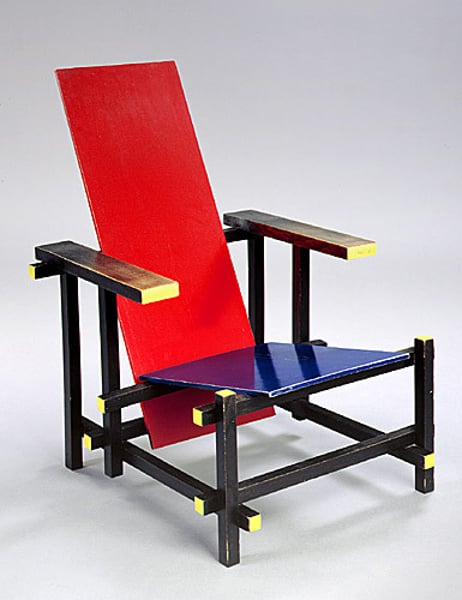
Zigzag Chair
De Stijl furniture; by Gerrit Rietveld
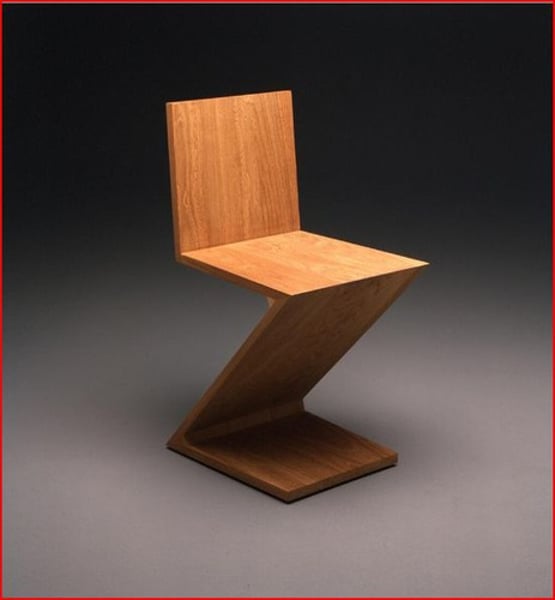
Schroder House by Gerrit Rietveld
Facades are a collage of planes and lines whose components are purposely detached from one another. Inside there is no static accumulation rooms because it has changeable open zones
Bauhaus School
A school of design established in Niemar, Germany that focused on the universality of design
Walter Gropius
Founder of the Bauhaus School. Pioneer of modern architecture. First to use curtain-walling
Ludwig Mies van der Rohe, Walter Gropius, and Frank Lloyd Wright
Masters of Modern Architecture
Ludwig Mies van der Rohe
Pioneer of skyscrapers. Works; Barcelona Building and Seagram building
Barcelona Pavillion
Asymmetrical, single story building divided by partition walls using marble, onyx, and chrome
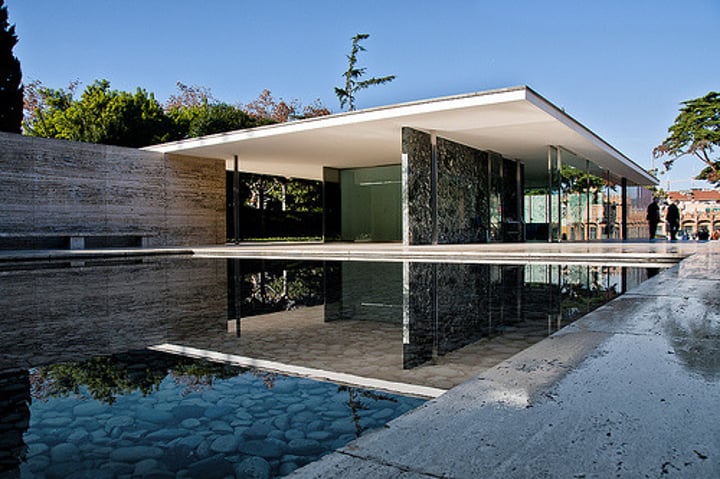
Barcelona Chair
Reminiscent of Greek Klismos; leather and bright chrome; by Ludwig Mies Van de Rohe
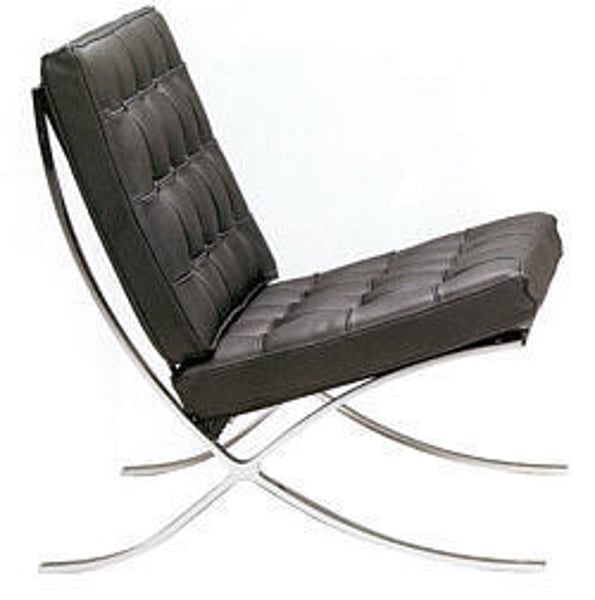
Barcelona Daybed
By Ludwig Mies Van de Rohe
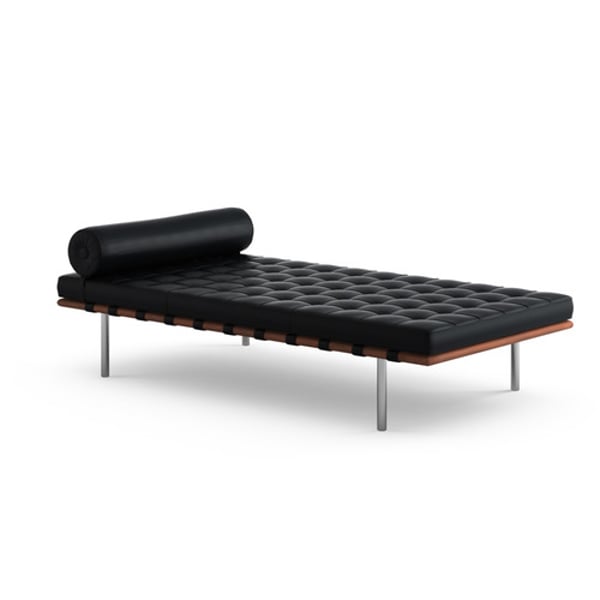
MR Chair
By Ludwig Mies Van de Rohe
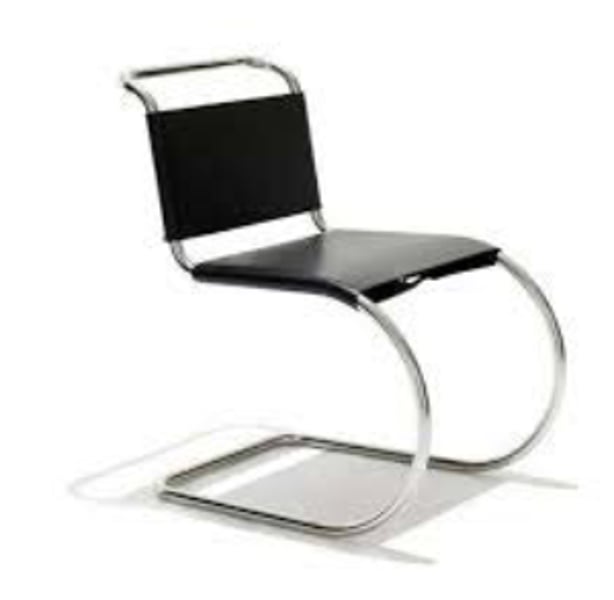
Brno chair
For the Czech republic; by Ludwig Mies Van de Rohe
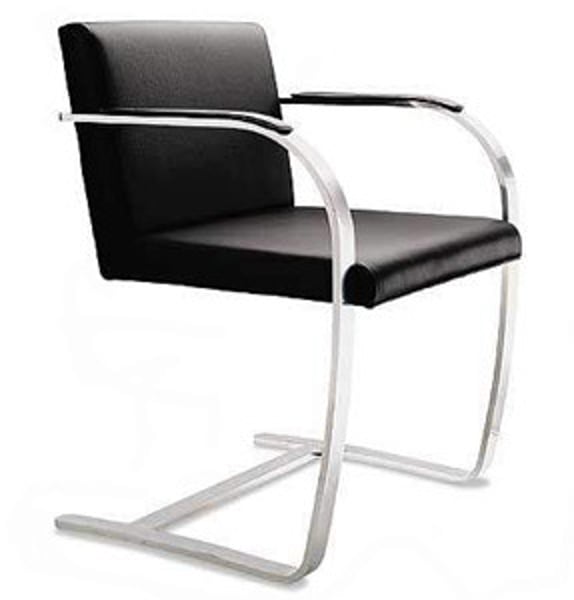
Marcel Breuer
The director of cabinetmaking workshop at the Bauhaus; invention of tubular steel furniture
Marcel Breuer
The ironic term "Maximum Simplicity" is attributed to [answer]?
Wassily Chair
Nickel plated steel frame with leather arms, seat and back rest by Marcel Breuer
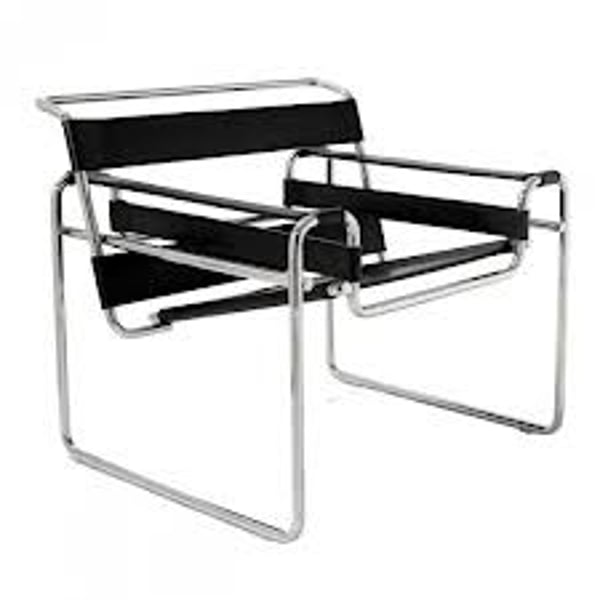
Cesca Chair
Cantilevered arm chair with metal tubing and cane back and seat
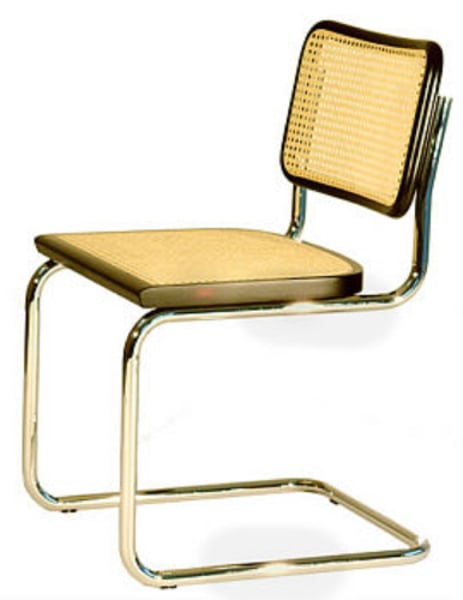
Modernism
Rejection if historical styles. Materials and functional requirements determine the result. The elimination of unnecessary detailing leads to machine aesthetics
Louis Sullivan
"Form follows function."; Father of Modernism
Wainwright Building by Louis Sullivan
Modernist architecture; the first building which used an elevator and is the 1st building to reach 10 storeys
Frank Lloyd Wright
Modernist architect; architecture is an extension of the environment; one of the most influential architect in the 20th Ce
Prairie style
Style of domestic American architecture
-2-storey ht w/ wings and porches of 1-storey
-central portion of the house is higher than its adjacent flanking wings
Guggenheim Museum by Frank Llyod Wright
Modernist architecture; created as a series of organic shapes; circular forms spiral down like the interior of a nautilus shell
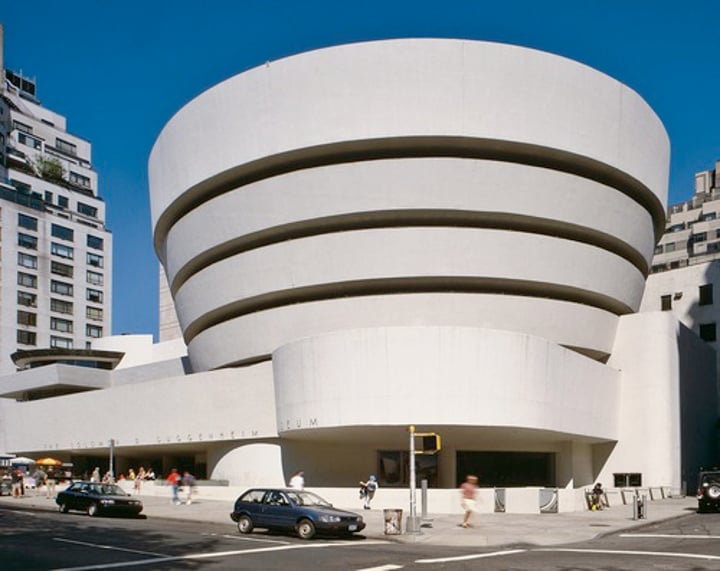
Falling Water by Frank Llyod Wright
Modernist architecture; special house built on waterfalls; harmony between man and nature
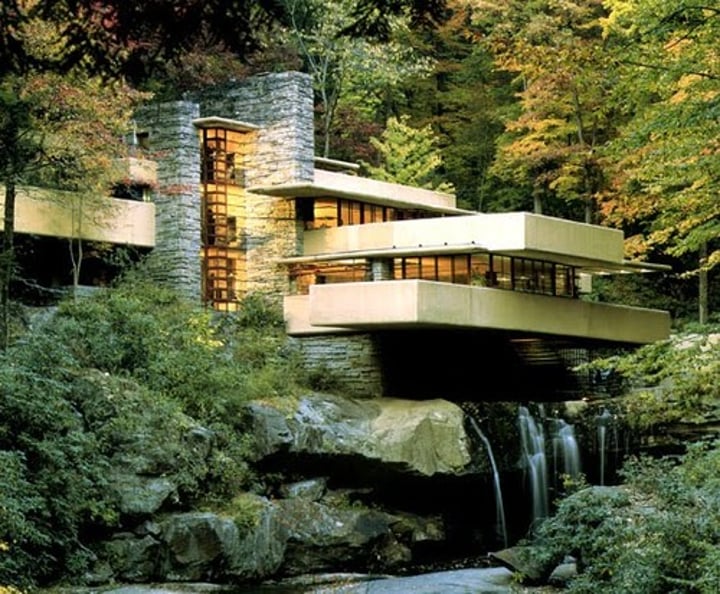
Johnson Wax Administration Building by Frank Lloyd Wright
Modernist architecture; constructed with more than 200 sizes and shapes of bricks
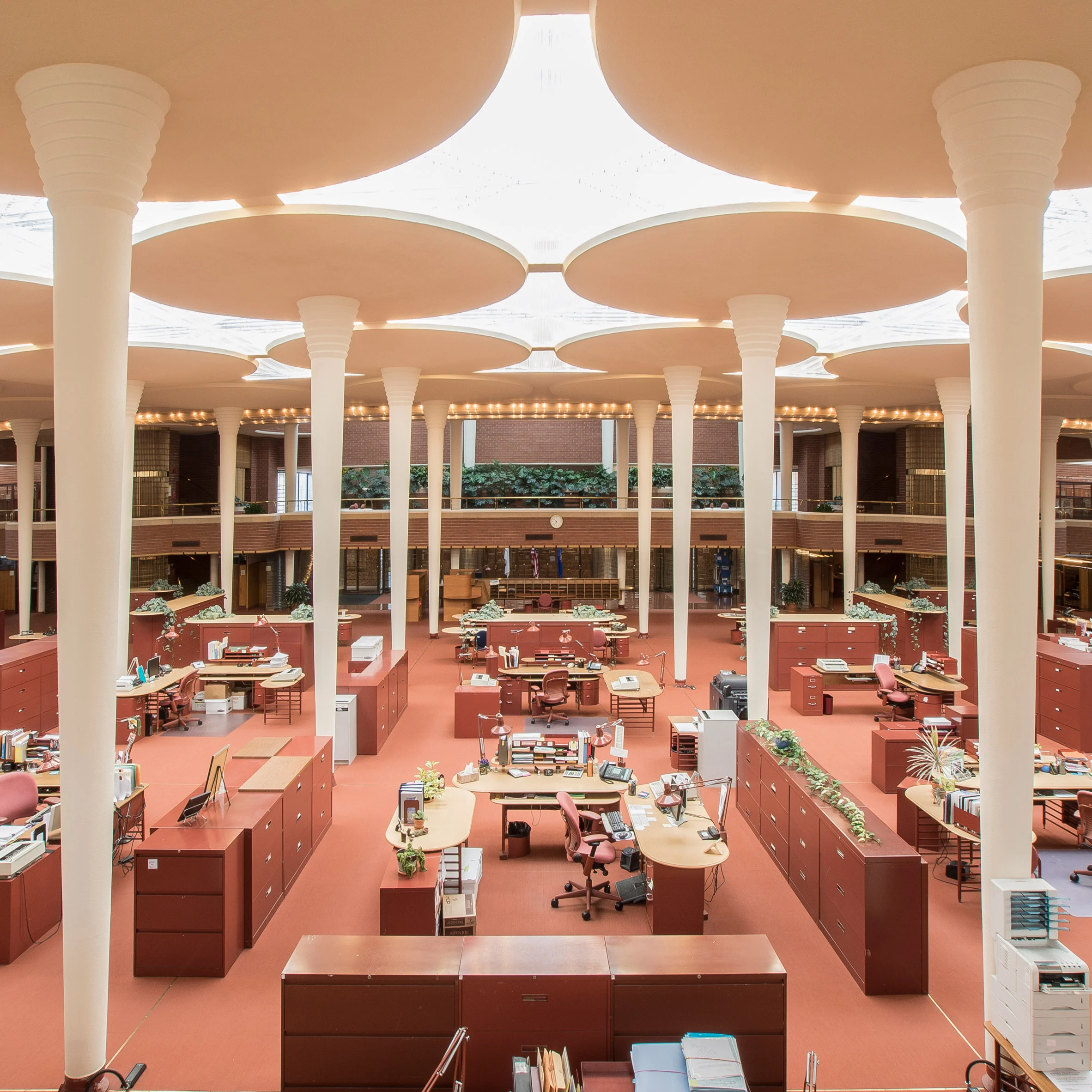
Usonian Houses by Frank Lloyd Wright
Modernist architecture; can be assembled using pre-fabricated wood sandwich panels erected with simple construction
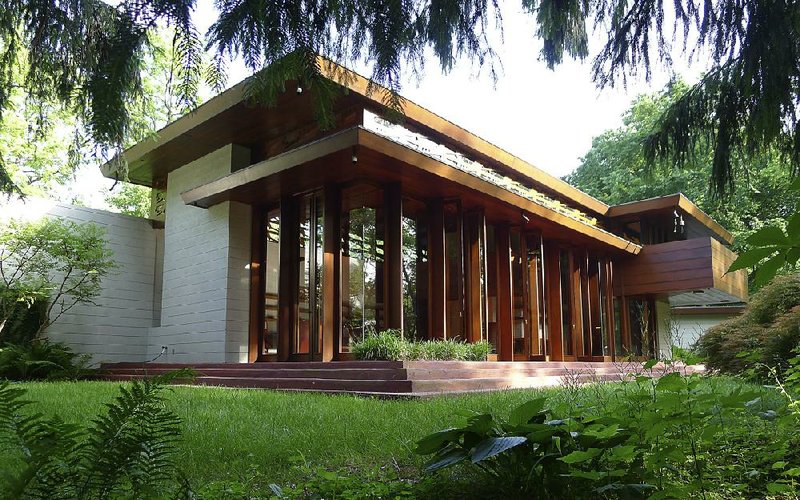
Le Corbusier (Corbu)
Described the house as "machine for living in"; invented the pilotis
Charles Deouard Jeanneret
Real name of Le Corbusier
Pilotis
A column of iron, steel, or reinforced concrete supporting a building above an open ground level.
Villa Savoye by Le Corbusier
Modernist architecture; a weekend house known for allowing sunlight to pour into the main living quarters. It features stilted architecture with slender columns which created an illusion of lightness
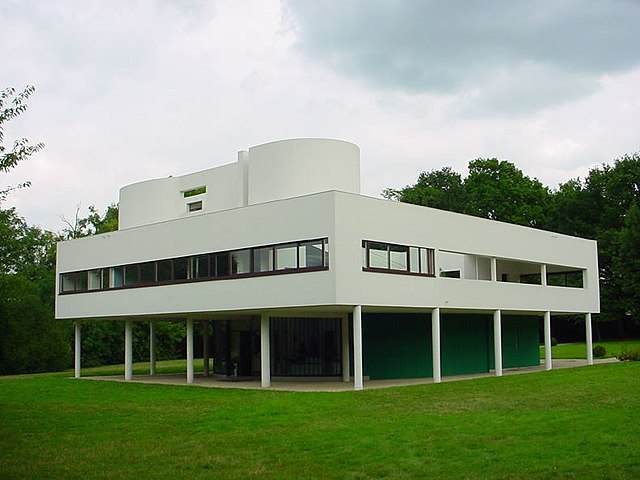
Unite d’Habitation by Le Corbusier
Modernist architecture; tenement housing in France. A design made from the combination of anthropometrics and golden proportion
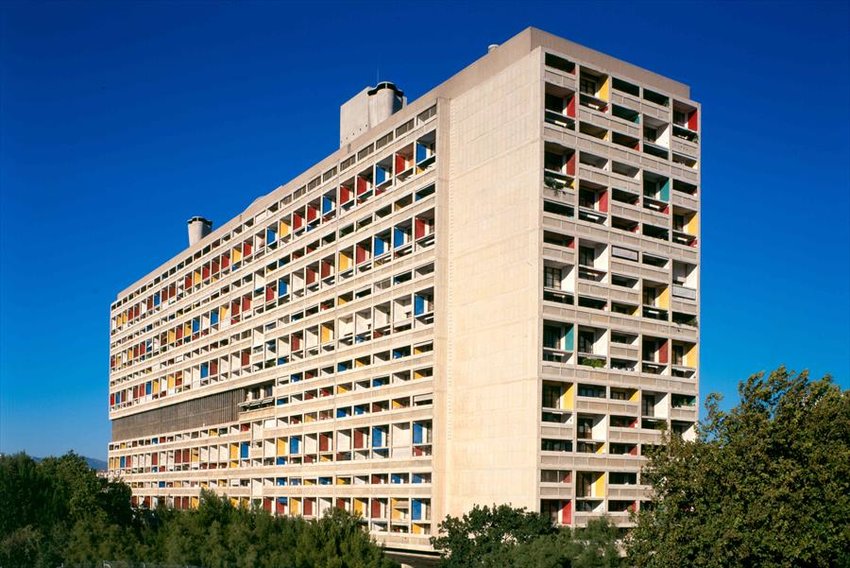
Notre Dame-du-Haut Ronchamp by Le Corbusier
Modernist architecture; a chapel made mostly of concrete and is enclosed by thick walls. The structure was like a sail billowing the windy currents on the hill top
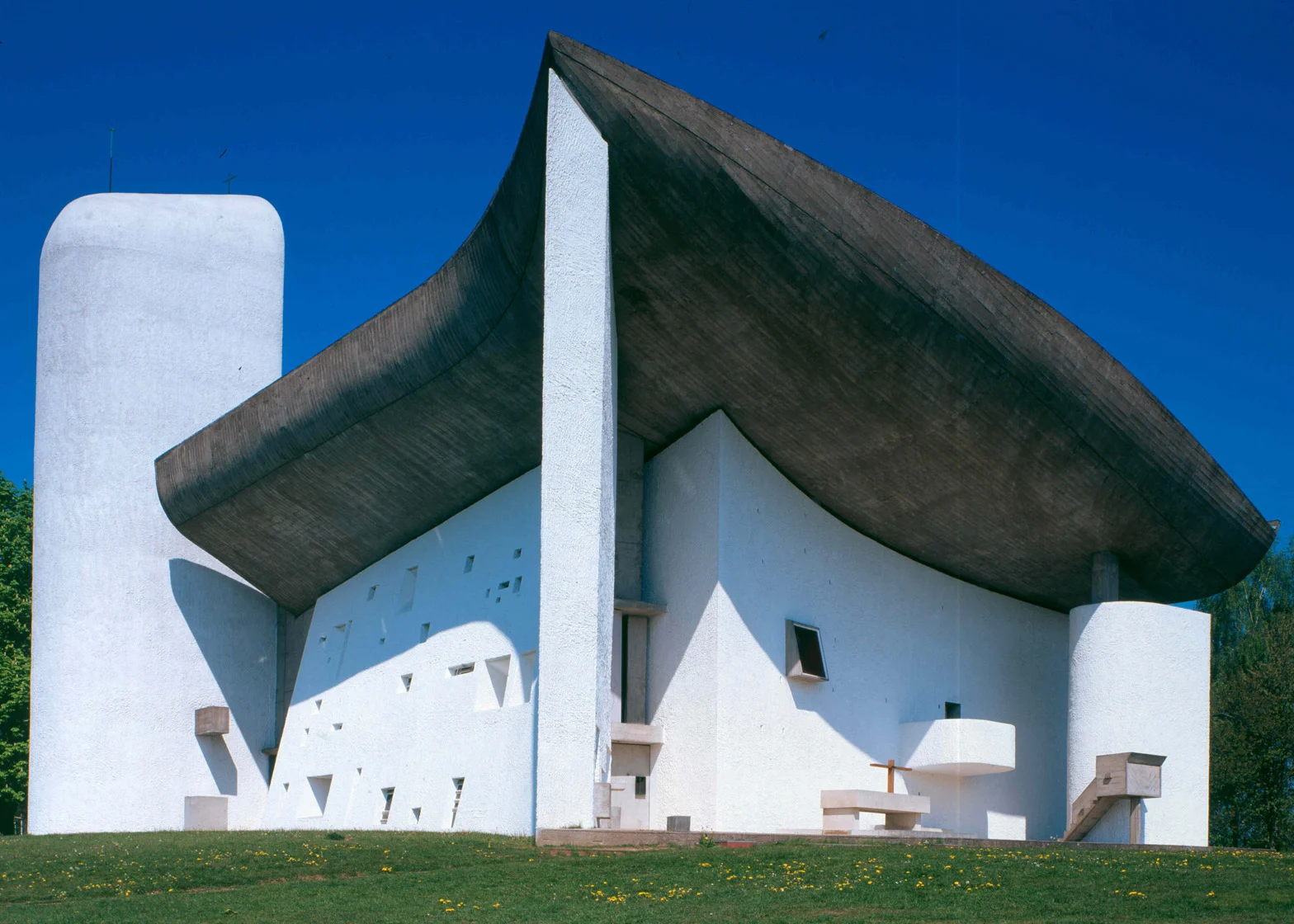
Le Corbusier/LC2 chair
Grand comfort armchair by Corbu
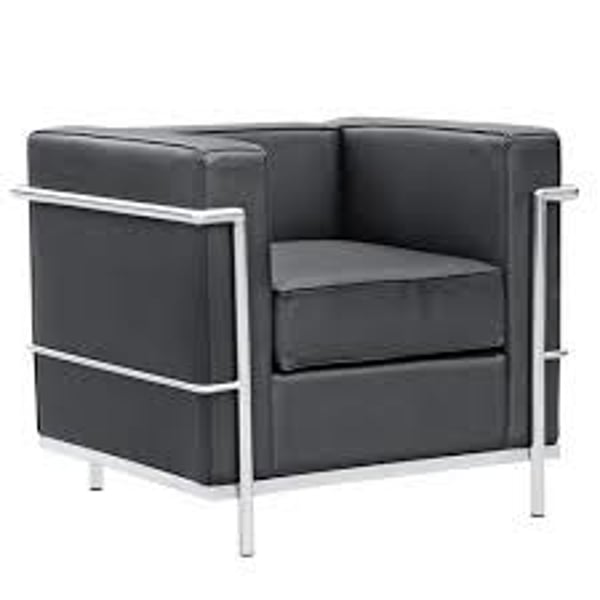
Adjustable Chaise lounge
The first chaise to be made adjustable by simply moving the whole seat element within its quite separate support frame. By Le Corbusier
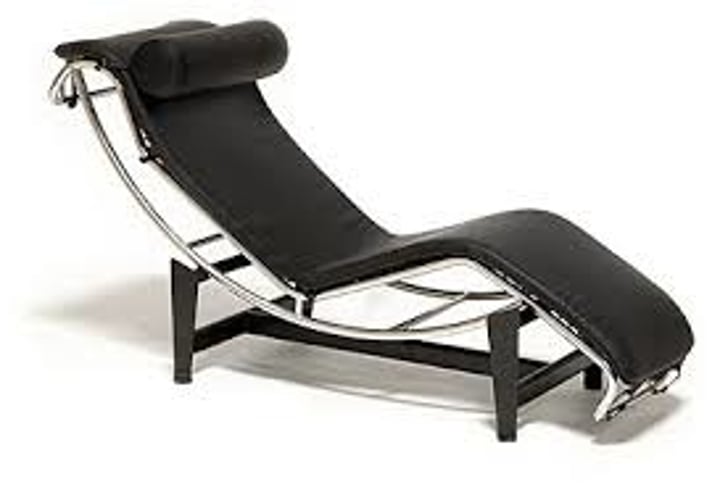
Charles Eames
Considered to be the most significant creative designer to have the most impact on today's design
Eames lounge chair
By Charles Eames
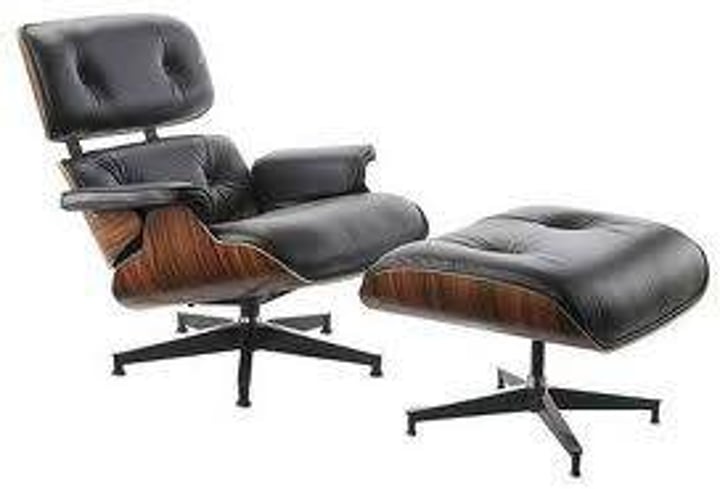
LCW dining chair
By Charles Emaes
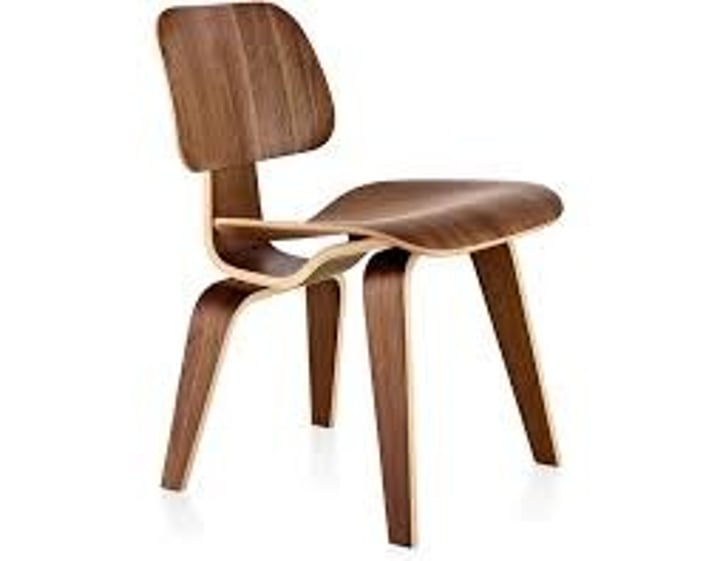
Eames Chaise Lounge
By Charles Eames
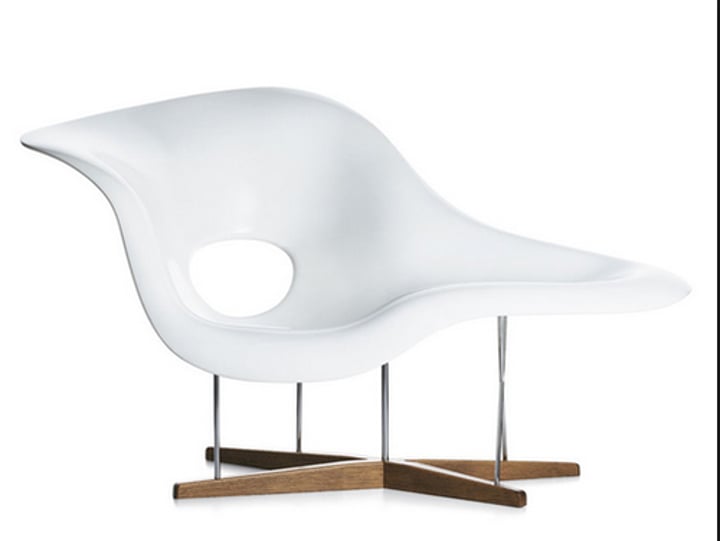
Hans Wegner
A danish designer known as the "master of the chair." He designed over 500 different chairs including a series of Chinese inspired wooden chairs
Wishbone chair
By Hans Wegner; teak and paper cord seat
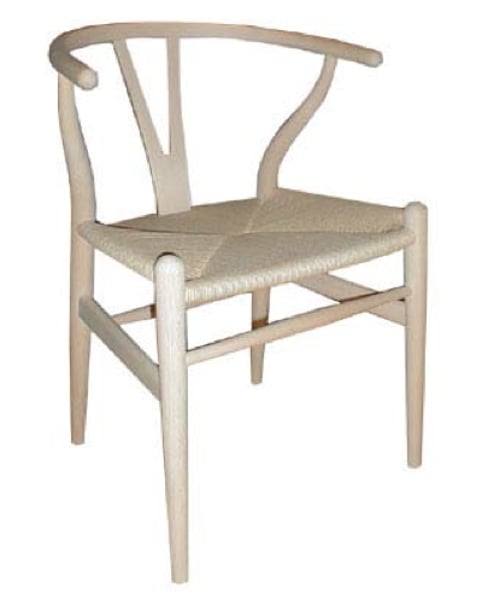
Finn Juhl
Modernist Danish Designer. Work; Chieftain Chair
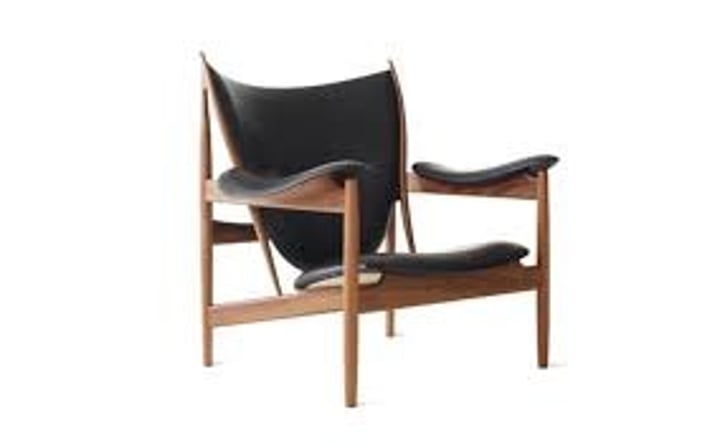
George Nelson
American architect and designer. Works; Pretzel chair, Marshmallow sofa
Pretzel Chair
By George Nelson
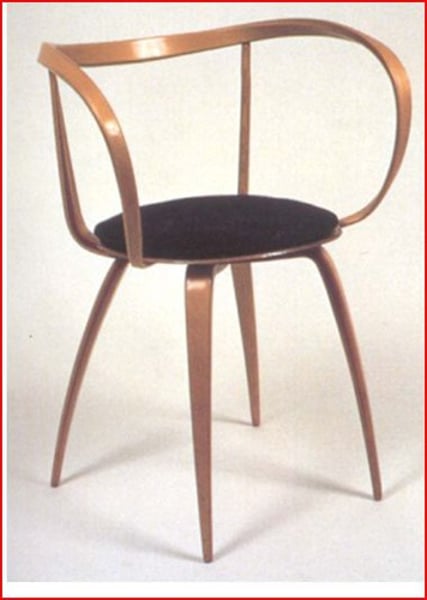
Marshmallow Sofa
By George Nelson; has 18 buttons/circles
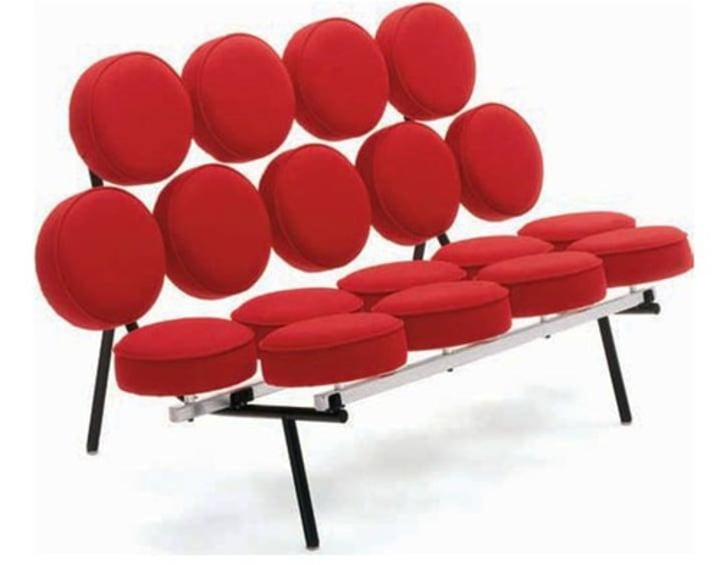
Aarne Jacobsen
Each piece had a purpose. Works; Egg chair, Swan chair
Egg Chair
By Arne Jacobsen
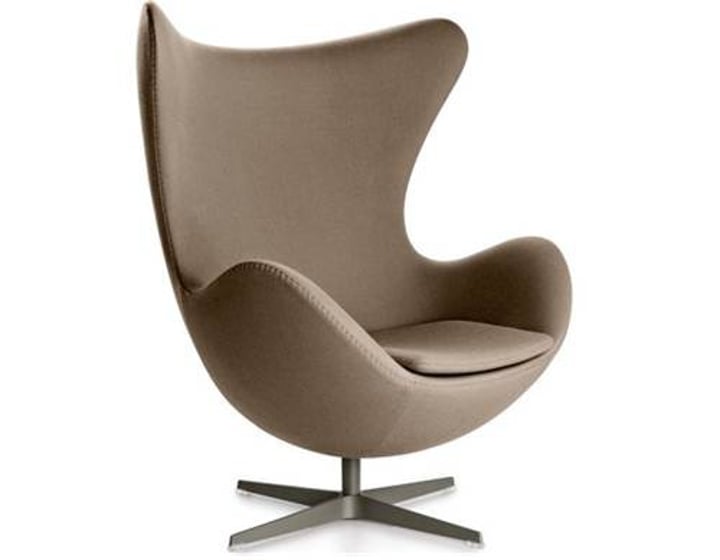
Swan Chair
By Arne Jacobsen
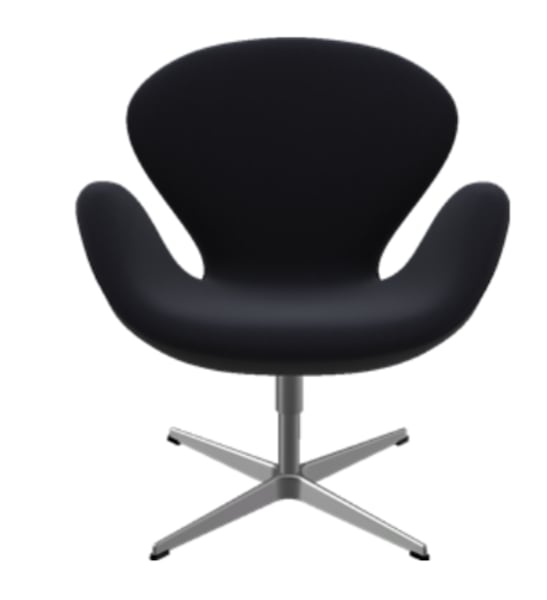
Eero Saarinen
Believed that plastic was the most appropriate because it was structural; function influence but does not dictate form. Works; Womb chair, tulip chair
Womb Chair with Stool
By Eero Saarinen
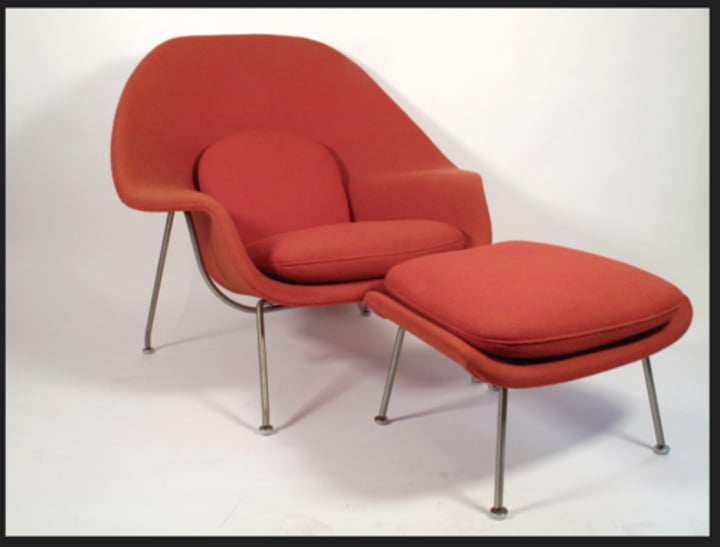
Tulip Chair
By Eero Saarinen
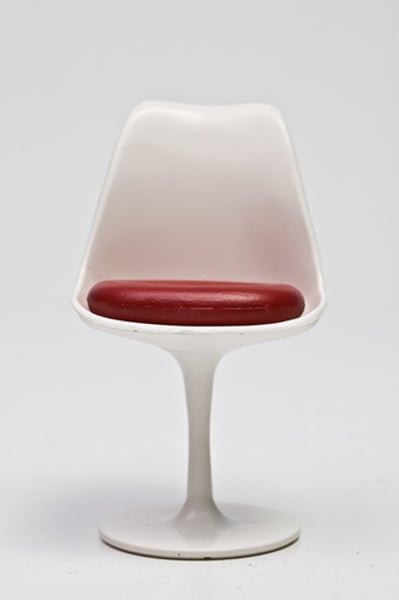
Alvar Aalto
He Used Wood over metal; excelled in mass production. Works; Paimio chair, Stool 60
Paimio Chair
For TB Hospital by Alvar Aalto
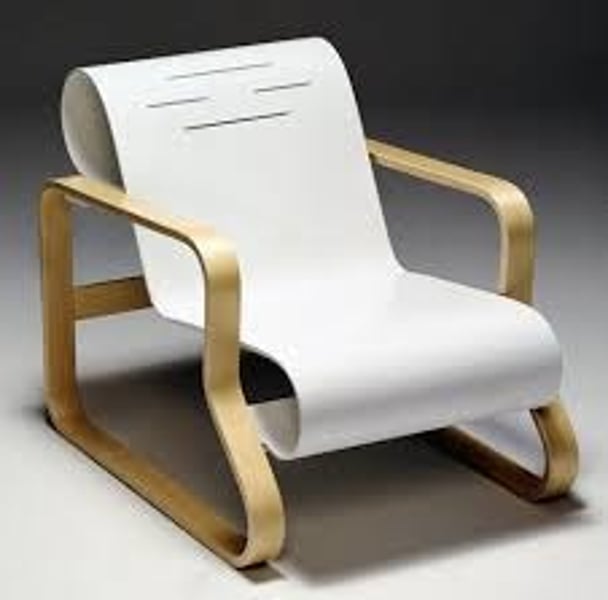
Stool 60
1st Stackable chair
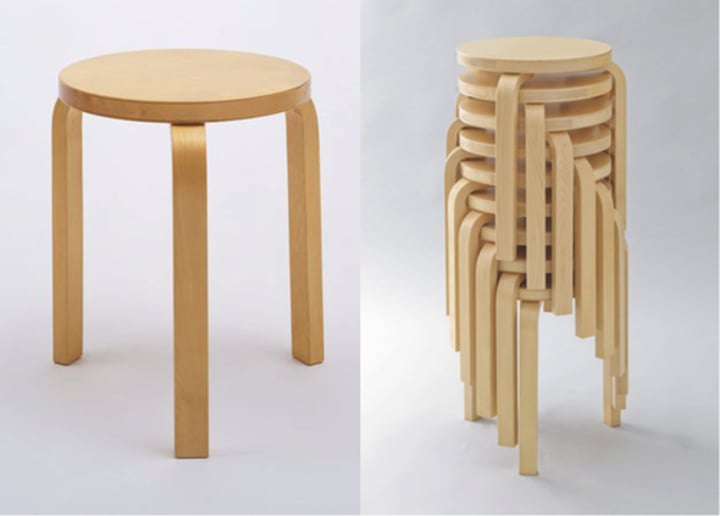
Olivier Mourgue
French industrial designer famous for his futuristic Djinn chairs made of tubular steel frames
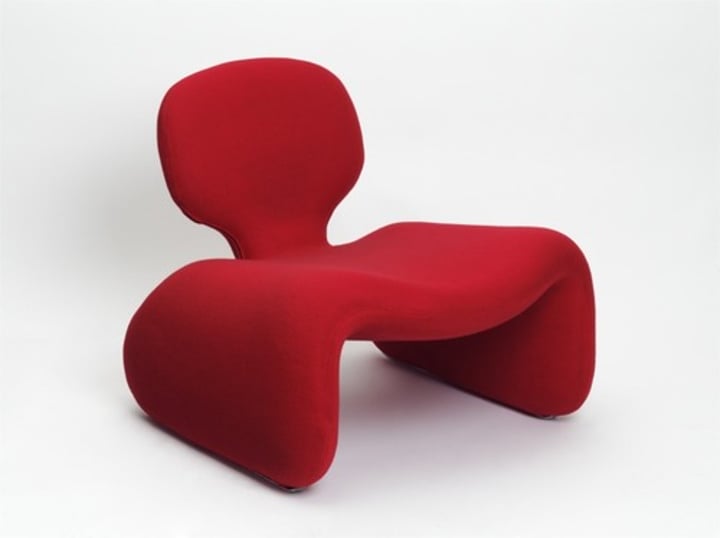
Edward Wormley
Known for reinterpreting classical & historical design into modern forms. Work; Listen to me chair
Tete-a-tete
By Edward Wormley
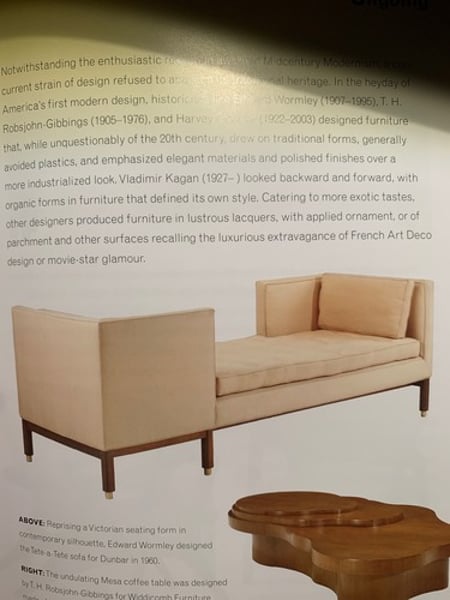
Listen to Me Chair
Psychiatric chair by Edward Wormley
Verner Panton
Master of fluid, futuristic style. Works; panton stacking, cone chair
Panton Stacking
Stackable chair by Verner Panton
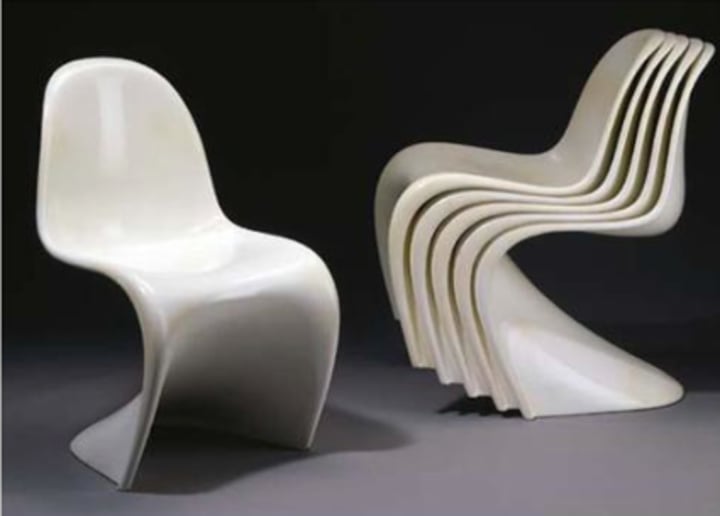
Cone Chair
By Verner Panton
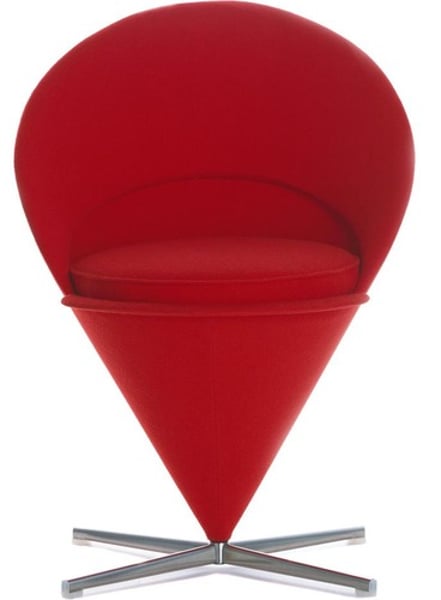
Eero Aarnio
A Finnish interior designer, pioneer in plastic chairs. Works; Pasil chair, bubble chair
Pasil chair
By Eero Aarnio
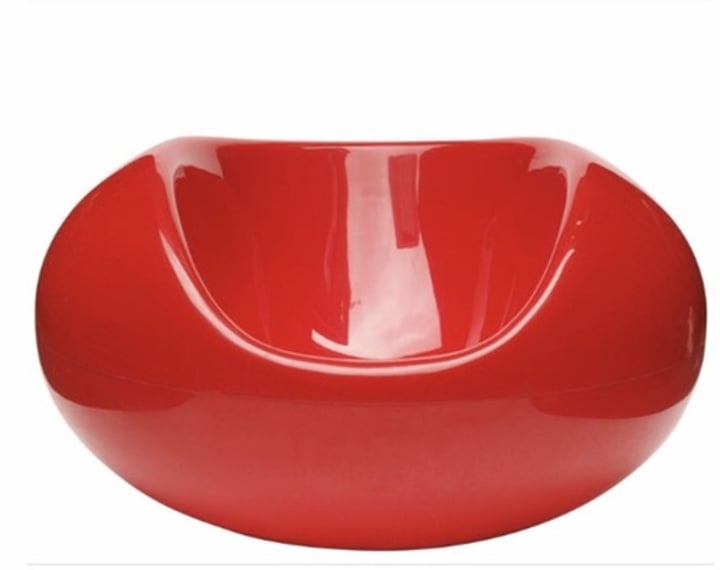
bubble chair
By Eero Aarnio
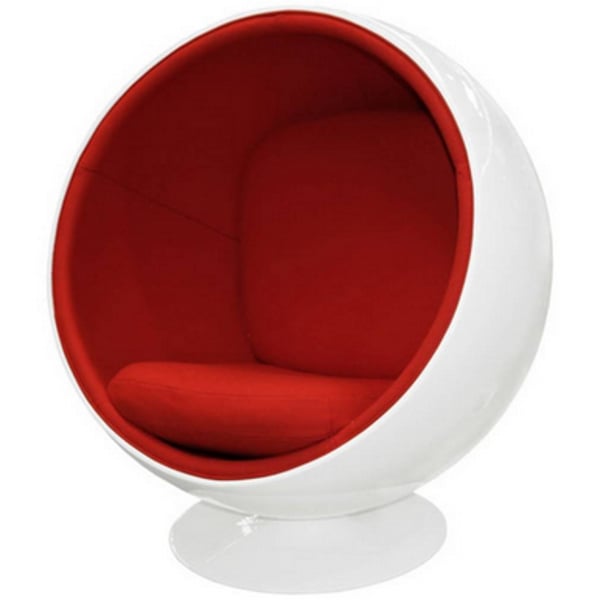
Harry Bertoia
Chairs should be able to rotate and change; steel. Work; Diamond chair
Diamond Chair
By Harry Bertoia
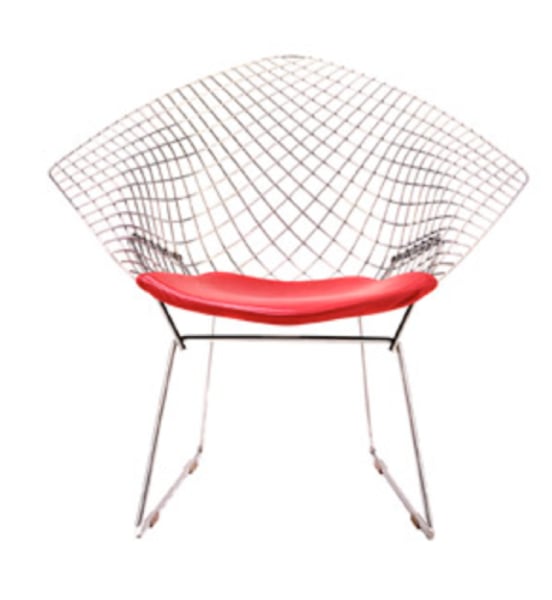
Bruno Mathsson
Bending of laminated wood; Swedish furniture designer and architect known for his functional modern pieces combined with Swedish craft tradition. Work; Eva chair
Eva Chair
By Bruno Mathsson

Art Deco
A style of decorative art characterized by geometric motifs, streamlined and curvilinear forms and sharply-defined outlines
Style Moderne
Art Deco is also called [answer]. It is essentially an eclectic style because of its diversity of historical sources. It is a shortened form from the “Exposition Internationale Des Artes Decoratifs et Industriels Modernes” where it was first seen
True
True or false: Due to the 1930s crash of stock exchange in America, Art Deco emerged
Chrysler Building
Art deco architecture; it was the world’s tallest building before it was overtaken by the Empire State Building. It is currently the 2nd tallest building in New York
Sun Motif
The Chrysler Building’s top features a
Empire State Building
Art deco architecture; a 102 storey skyscraper derived from New York’s nickname, Empire State. It was the title holder of the tallest building for 40 years until the construction of The World’s North Tower
International Style
A functional architecture devoid of any regional character. Characterized by simple, geometric forms, large, untextured often white surfaces, large areas of glass and general use of steel or reinforced concrete construction
UN Headquarters by Wallace K. Harrison
International style architecture; a 39 storey or 166m tall slab has become a worldwide symbol of the UN. It has a green glass-curtain tower which is the 1st of its kind in New York